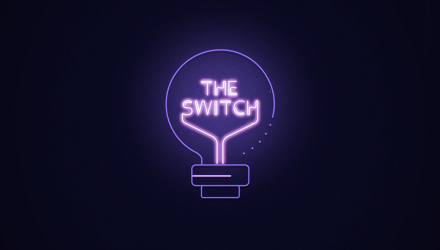This season of “The Switch” is focused on how innovation performs in times of market turmoil. In this episode, host Ren Leggi, client portfolio manager for ARK, is joined by ETF Trends’ CEO, Tom Lydon, and CIO, Dave Nadig, to discuss volatility, and how it is not a bad word.
Nadig opens the discussion by explaining that volatility is actually a necessary and good thing in order to enable portfolio performance; because parts of the market are constantly in motion in opposite directions and because there can be unpredictable movement, volatility is what enables the creation of top-performing portfolios.
Leggi explains that at ARK, it is a combination of volatility and correlation that provides portfolio diversification.
“When you look at how investors allocate across asset classes, it has to be dynamic,” Leggi says. Looking across the asset classes that exemplify this, Leggi makes the argument that such investments could indeed become their own unique asset class and not just a style of investing.
Looking under the hood of some of ARK’s investments yields a low correlation percentage between the technologies when viewed in isolation. ARK did a study both pre- and what they are calling post-pandemic and found that between its 14 major, transformational technologies, the correlation rate was just 0.22 pre-pandemic and now is 0.32; for perspective, the correlation of the S&P 500 was 0.55 pre-pandemic and 0.73 post-pandemic.
Nadig digs a bit into the idea that tilting an index or investment strategy in an attempt to find more uncorrelated performance, such as momentum or quality, isn’t a new approach, but asks if innovation should be a tilt or its own asset class. ARK believes that innovation should be its own asset class with its own growth trends due to the disruption it also causes.
“This kind of sets a new kind of category within that growth bucket where it can be creating tremendous amounts of value but also disintermediating existing industries,” Leggi explains.
It’s a category and opportunity that traditional indexes that are rules-based largely miss out on, Leggi believes; in a record year for ETFs, there were also a large number of IPOs, SPACs, and direct listings that simply wouldn’t be captured by many of the traditional indexes for a while. This provides an opportunity for ARK to capture the upside potential in a whole host of companies before they would even be on the radar of other funds that are bound to indexes that might have time restrictions for inclusion.
This year has been a year of not just record ETF flows but also one with volatility spiking periodically; it’s a volatility that is akin to the late 1980s and the movement of investors into emerging markets for the first time, explains Leggi.
“If you look at the late ’80s, these emerging markets, when you looked at them in isolation, were very volatile, and that scared a lot of investors that were considering them at the time,” Leggi says. “They were associated with geopolitical uncertainty, you had corporate governance issues, you had liquidity issues, and I think some of those actually translate and are similar to what’s happening when it comes to these technologies.”
The similarities can be drawn particularly when looking at innovation and the associated technologies from an isolated perspective, as it carries the same types of volatility; the solution to the emerging markets volatility back then was to create an index, and ARK approaches it in a similar manner by grouping these seemingly uncorrelated technologies together.
Leggi anticipates investors growing more comfortable with the volatility within the space as MSCI has just created a series of indexes based around innovation. He believes that the ability to track trends historically and look at the volatility over time will help bring more comfort and confidence to the space. Looking forward, innovation could be setting up to be an outperformer in markets that are potentially rotating from growth to value.
“Innovation is all about solving problems: innovation is around building things cheaper, faster, more efficient, and it’s in periods of turmoil that these innovative companies are solving these problems and gaining market share,” says Leggi.
For more episodes, check out The Switch video playlist.
For more news, information, and strategy, visit the Disruptive Technology Channel.

